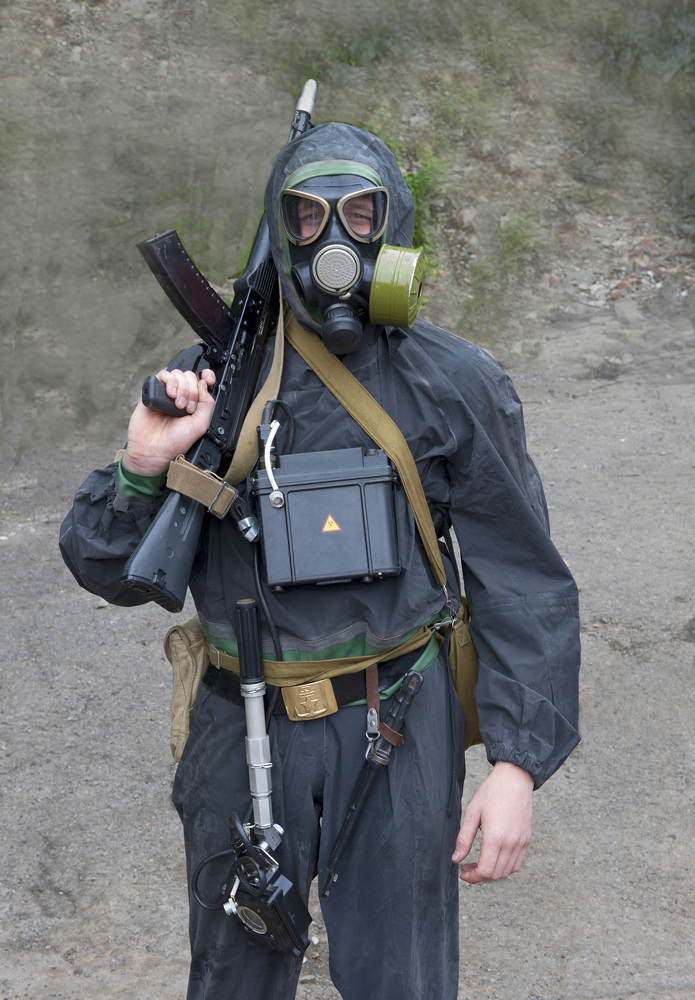
Just a week after an international coalition carried out airstrikes on an ISIS chemical weapons facilities, marines and sailors took part in a three-day course on combating, adapting to and overcoming chemical and biological contaminations from Dec. 5-8.
The course was administered by Corps Forces Special Operations Command (MARSOC) at Marine Corps Base Camp Lejeune in North Carolina. Marines and sailors learned to recognize signs and symptoms of chemical weapons, to use protective clothing and devices effectively, and to treat others without contaminating themselves.
“The threat is very real today,” Timothy Byrne, director of the Chemical Casualty Care Division at the U.S. Army Medical Research Institute of Chemical Defense, said. “Chemical weapons, such as mustard and chlorine gases, have been used in Iraq and Syria in recent events.”
Chemical weapons like nerve, blister, and choking agents can be administered in liquid, vapor, gas, and aerosol forms. Biological weapons like toxins, bacteria, viruses, and fungi can be used to kill or maim their targets.
“While chemical weapons symptoms can be seen in minutes to hours, biological weapons can take days before symptoms are seen,” U.S. Army Capt. Perry Wiseman, a nurse with the U.S. Army Medical Research Institute of Infectious Disease, said. “It is important for them to be able to recognize any symptoms as soon as possible to limit any spread that can occur.”
Attendees of the course learned that vomiting, convulsions, skin irritation, headaches, and difficulty breathing can be common symptoms of chemical weapons attacks. Biological attacks, meanwhile, are characterized by flu-like symptoms that can be mistaken for the common cold.
While marines undergo chemical, biological, radiological and nuclear (CBRN) training on a biennial basis, but MARSOC aimed to address gaps in current CBRN training practices related to counteracting the effects of chemical and biological attacks and rendering medical aid.
“This is multi-service training on field management, decontamination and medical treatment of biological and chemical warfare agents,” Byrne said. “It is also customized to the needs of the units in order to be mission ready.”
The course consisted of reaction drills for scenarios like chemical weapons attacks and decontamination of patients. Attendees also learned best practices to handle biological weapons and available treatments to control threats.
“Our hope is that they never encounter a chemical or biological environment, but if the teams do, we want them to have the skills to effectively treat and mitigate exposure,” MARSOC’s force health protection officer said. “The next life they may save could be their own, and being able to recognize signs, symptoms, and exposure could be that lifesaving factor.”




